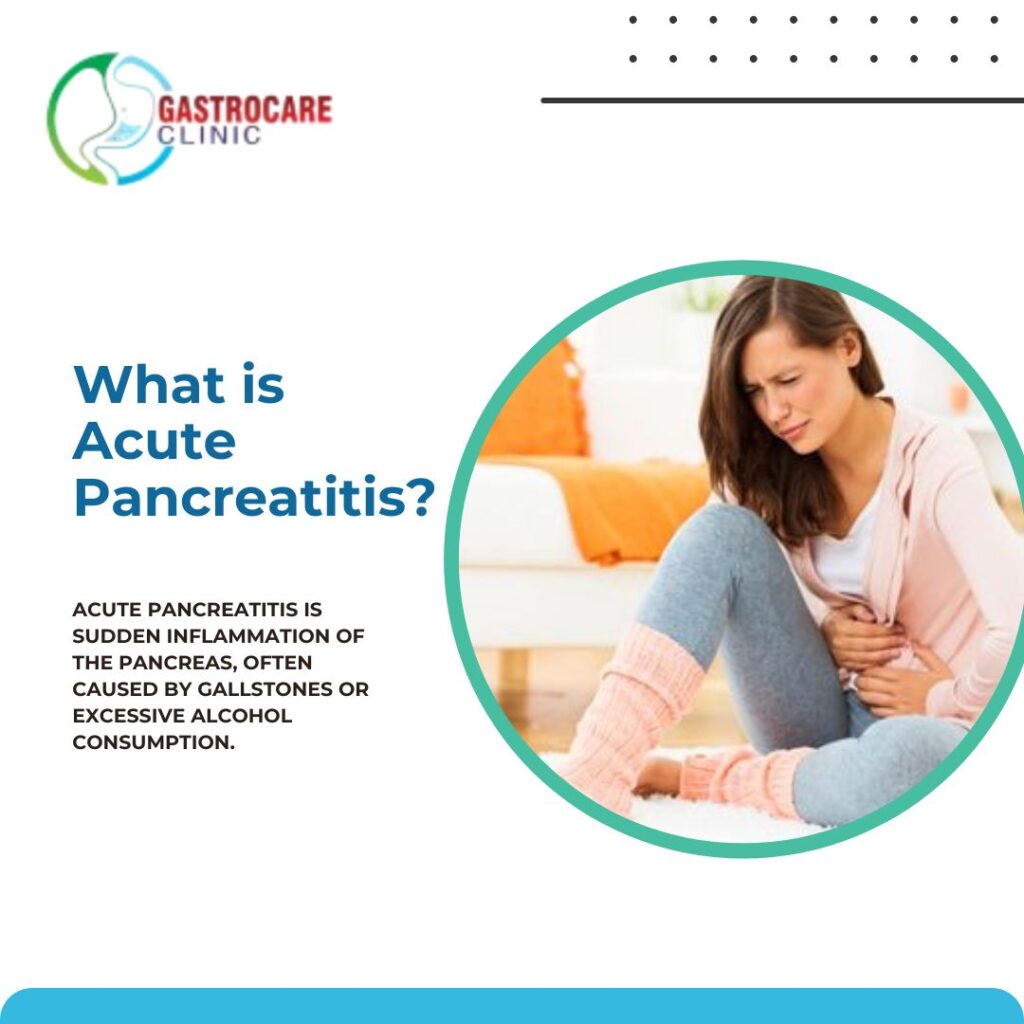Acute pancreatitis is a sudden inflammation of the pancreas, a vital organ responsible for digestion and blood sugar regulation. This condition can range from mild discomfort to severe, life-threatening complications. Seeking timely medical attention from a pancreas specialist in Sangli is crucial for proper diagnosis and treatment. In this article, we will explore the causes, symptoms, diagnosis, and treatment options for acute pancreatitis. Understanding Acute Pancreatitis is essential for recognizing its causes, symptoms, and treatment options. Early diagnosis and expert care can help manage this serious condition effectively.
Understanding Acute Pancreatitis
The pancreas is an essential organ located behind the stomach. It produces digestive enzymes and hormones like insulin to regulate blood sugar. When the pancreas becomes inflamed suddenly, it can cause acute pancreatitis, leading to severe abdominal pain and other complications.
Causes of Acute Pancreatitis
Several factors can trigger acute pancreatitis, including:
- Gallstones: These small stones can block the pancreatic duct, leading to inflammation.
- Excessive Alcohol Consumption: Chronic alcohol use is a significant risk factor for pancreatitis.
- High Triglyceride Levels: Increased fat levels in the blood can contribute to pancreatic inflammation.
- Certain Medications: Some drugs, including corticosteroids and diuretics, may induce pancreatitis.
- Infections: Viral infections like mumps can sometimes cause acute pancreatitis.
- Abdominal Trauma: Injury to the pancreas due to an accident or surgery can lead to inflammation.
- Autoimmune Diseases: Conditions like lupus can cause the immune system to attack the pancreas.
Symptoms of Acute Pancreatitis
The symptoms of acute pancreatitis vary depending on the severity of the condition. Common signs include:
- Severe Abdominal Pain: Pain typically starts in the upper abdomen and may radiate to the back.
- Nausea and Vomiting: Persistent nausea is a common symptom.
- Fever and Chills: Inflammation can cause an increase in body temperature.
- Swollen and Tender Abdomen: The belly may feel bloated and painful to touch.
- Rapid Heart Rate: Increased heart rate can indicate severe inflammation.
- Jaundice (Yellowing of Skin and Eyes): If the bile duct is blocked, jaundice may develop.
Diagnosing Acute Pancreatitis
A pancreas specialist in Sangli will perform various tests to confirm acute pancreatitis, including:
- Blood Tests: Elevated levels of pancreatic enzymes (amylase and lipase) indicate pancreatitis.
- Ultrasound: Helps detect gallstones and other blockages in the pancreatic duct.
- CT Scan: Provides detailed images of the pancreas to assess damage.
- MRI: Identifies abnormalities in the pancreas and surrounding tissues.
- Endoscopic Ultrasound (EUS): A specialized test to examine the pancreas closely.
Treatment Options for Acute Pancreatitis
Treatment for acute pancreatitis depends on the severity of the condition. The primary goal is to reduce inflammation, manage pain, and prevent complications.
1. Hospitalization and Supportive Care
Most patients with acute pancreatitis require hospitalization. Treatment includes:
- Intravenous (IV) Fluids: To prevent dehydration and maintain electrolyte balance.
- Pain Management: Medications help relieve severe abdominal pain.
- Nutritional Support: In severe cases, patients may receive nutrients through a feeding tube.
2. Addressing the Underlying Cause
- Gallstone Removal: If gallstones cause pancreatitis, a pancreas specialist in Sangli may recommend surgery.
- Alcohol Cessation: Patients with alcohol-induced pancreatitis should avoid alcohol completely.
- Lowering Triglycerides: Medications and dietary changes can help reduce high triglyceride levels.
3. Medications and Lifestyle Modifications
- Antibiotics: Used if an infection is present.
- Enzyme Supplements: May be prescribed for better digestion in chronic cases.
- Healthy Diet: Low-fat foods, hydration, and avoiding processed foods aid recovery.
4. Surgical and Endoscopic Procedures
- ERCP (Endoscopic Retrograde Cholangiopancreatography): A procedure to remove blockages in the pancreatic duct.
- Pancreatic Surgery: In severe cases, surgery may be required to remove damaged tissue.
Preventing Acute Pancreatitis
To reduce the risk of acute pancreatitis, consider the following preventive measures:
- Maintain a Healthy Diet: Eat a balanced diet rich in fruits, vegetables, and lean proteins.
- Limit Alcohol Consumption: Avoid excessive alcohol intake.
- Exercise Regularly: Helps maintain a healthy weight and lowers triglyceride levels.
- Monitor Medications: Consult a doctor before taking medications that may affect the pancreas.
- Treat Gallstones Promptly: If you have gallstones, seek treatment before they cause complications.
When to See a Pancreas Specialist in Sangli?
Seek immediate medical attention if you experience severe abdominal pain, persistent vomiting, jaundice, or fever. A timely consultation with a pancreas specialist in Sangli can help prevent complications and ensure proper treatment.
Conclusion
Acute pancreatitis is a serious condition that requires prompt medical care. Understanding its causes, symptoms, and treatment options can help in early detection and management. If you or a loved one experience symptoms, consult a pancreas specialist in Sangli for expert care and guidance. Prioritizing a healthy lifestyle and regular check-ups can go a long way in preventing pancreatitis and maintaining overall well-being.
Understanding Acute Pancreatitis is essential for recognizing its causes, symptoms, and treatment options. Early diagnosis and expert care can help manage this serious condition effectively.

